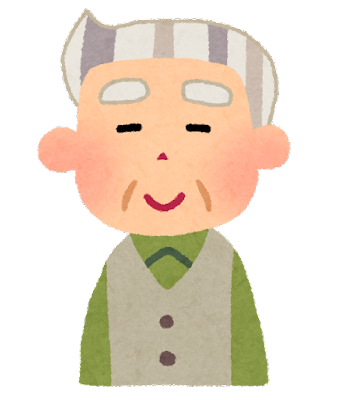ライフハックとしてではなく、英語学習にも極めて有用なのが、著名人が10分程度のプレゼンを行うTEDです。
TED Talksとは、あらゆる分野のエキスパートたちによるプレゼンテーションを無料で視聴できる動画配信サービスのことです。10年ほど前にサービスが開始されてから、政治、心理学、経済、日常生活などの幅広いコンテンツが視聴できることから人気を集めています。
RareJob English Lab
TEDは4000を超える膨大な数の動画があります。しかし慣れないうちは、動画の探し方や視聴のコツが分かりませんよね。この記事では、数多くのTEDを見てきた管理人(塩@saltandshio)が、心を揺さぶられたトークをあらすじと一緒にご紹介します。
ビジネス英会話を効率よく身につけたい方におすすめスクール
シェーン英会話
シェーンは1977年の創業以来、ネイティブ講師が英語を英語で教える「直接教授法」を採用しています。首都圏におけるスクール拠点数は、ネイティブ講師の英会話スクールでNo.1。駅から近いスクールが多いので通いやすく時間を有効に使えます。
スピークバディ パーソナルコーチング
1日1時間の短期集中トレーニングで、あなたの英語力向上をコーチが全力でサポートします。あなたの英語の世界が、劇的に変わります。
ロバート・ウォールディンガー: 人生を幸せにするのは何?最も長期に渡る幸福の研究から
一生を通し、私達を幸福で健康にするものは何でしょう?名声や富 ― そう考える人はたくさんいます。75年に渡る成人発達に関する研究のディレクターであるウォールディンガーは、真の幸福と満足感に関する無類のデータを基に、3つの重要な教訓と昔からの知恵、幸せな長寿の秘訣を、このトークで語ります(約13分)。
[PR]無料体験レッスン実施中!全国208校、創業40年の老舗英会話スクール【シェーン英会話】良い人間関係が健康と幸福をもたらす
ロバート・ウォールディンガーは、ハーバード成人発達研究に取り組む心理学者のひとりです。ハーバード成人発達研究は、75年もの長期間にわたって724人の男性の追跡調査を行い、仕事や家庭生活、健康などを毎年記録している史上最も長期に渡って継続している研究です。
ほとんどの研究が、被験者が辞める、研究資金の不足、研修者が交代または亡くなるという理由で10年も続かない中、幸いなことにこの研究は(※このトークが収録されている時点で)約60人が生き残っており、研究者達の根気強さのお陰の甲斐あっていまなお研究が続いています。
調査では、サンプルとして1938年のときにハーバード大学2年生だった男性と、ボストンの貧困環境で育った男性をピックアップし、その後の暮らしの変化や健康状態を毎年調べています。75年に渡る研究を続けた結果でわかったのは、人が幸福だと感じるのは、富や名声や無我夢中で働くことではなく、良い人間関係に尽きるということでした。
[PR]まずは無料カウンセリング”続けるため”の オンライン英語コーチ「スピークバディ パーソナルコーチング」健康に本当に良いのは周りとの繋がり
周りとの良い関係は、身体の健康を守ってくれることが調査の結果でわかりました。それだけではなく、被験者たちのなかで堅固で良い関係をしっかりと80代にまで持ち続けている人は、脳の健康も一緒に守られていました。
具体的な例を出すと、自分になにかあったときに本当に頼れる人がいると感じている人の記憶ははっきりしていますが、パートナーには全く頼れないと感じている人は記憶障害が早期に現れ始めていたのです。
良い人間関係といっても、長年にわたり一緒に暮らしていればいろいろなことが起きます。しかし、たとえ明けても暮れても小言を言い合っているカップルであっても、お互い頼り合えると感じている限りは、関係が良好といえます。
[PR]知って得する、知らないと損をする!すぐに役立つ相手に合った「伝え方」のコツ!孤独は命取り
75年間の調査研究により、人との繋がりがある人のほうが繋がりが少ない人よりも、長生きするという事がわかりました。これは、孤独は害となるということが、研究の結果で明らかになったといえます。
孤立化を甘んじて受け入れて生活している人は幸福感を感じておらず、とくに中年になってからの健康の衰えが早く、脳機能の減退も早期に始まり、孤独でない人と比べて短命でした。
ここで注意すべき点がいくつかあります。
群衆の中や、結婚生活を送っていても孤独を感じる人が一定数います。重要なのは、友人の数や、生涯を共にする相手の有無ではなく、身近な人達との関係の質だということです。周りの人々と争いの真っただ中で暮らすのは、健康に良くないということは想像ができます。愛情が薄い喧嘩の多い結婚は健康に悪影響を及ぼし、離婚よりも害があるのは想像に難くないでしょう。逆を言えば、愛情のある良い関係は心と身体を保護してくれるということです。
[PR]しちだの魔法ペンなら35日でバイリンガルに!楽天4部門1位の英会話!<七田式>コミュニティとよく繋がっている人ほど幸せ
この研究では、中年の時に人間関係の満足度が高い人ほど、80代でも幸福度が高いということがわかりました。
50才で良好な人間関係を築いていた人は80才になっても健康で、かつ親密な良い関係がクッションとなって、加齢過程でおこる様々な問題も和らげていたのです。とくにパートナー共々に幸福だと感じている人達は、80代になったときに身体的に苦痛があったとしても、精神的な幸福度は高めでした。
逆に不幸な関係にある人達は、身体的苦痛がある日に精神的苦痛が加わり、さらに身体的苦痛が増幅することもわかっています。
[PR]全国1400教室の子ども英会話教室【ペッピーキッズクラブ】まとめ:良い人生は良い人間関係で築かれる
親密で良い関係が、私たちに多くの幸せをもたらすということは、いまに分かった事ではありません。ですが、私たちは手っ取く手にすることが出来て、生活を快適に維持してくれるものが大好きです。
人間関係は複雑に込み入り、信頼を築き上げるには長い時間がかかります。しかもその作業は大変に地味で地道で死ぬまで続きます。ですが、定年退職後に一番幸福だった人は仕事仲間に代わる新しい仲間を自ら進んで作った人達でした。
彼らも若かりし頃は、名声や富や生きがいになる仕事やその業績が、良い生活をするには必要なものだと信じて疑いもしない人々でした。それにもかかわらず、年老いたときに幸福度を高めていたのは良好な人間関係だったのです。
幸せな人生を送るために、私たちがいまからでも行えることがいくつもあります。それは、長時間テレビやパソコンやスマートフォンを眺めることではなく、人と過ごす時間に充てたり、パートナーと一緒にデートに出かけたり新しいことを始めることです。しばらく電話をかけていない家族がいたら、連絡してみるのもよいでしょう。
家族のいざこざは悔恨を残し、自分の心身に悪影響を及ぼします。そうならないためにも、今からできることは実行に移していきましょう。
The good life is built with good relationships.
良い人生は良い人間関係で築かれます
いまから出来る事を積極的に生活に取り入れていきましょう。ちいさなことでも出来る事はなにかあるはずです。
英語全文
What keeps us healthy and happy as we go through life? If you were going to invest now in your future best self, where would you put your time and your energy? There was a recent survey of millennials asking them what their most important life goals were, and over 80 percent said that a major life goal for them was to get rich. And another 50 percent of those same young adults said that another major life goal was to become famous.
<全文を読む>▼クリック▼
But what if we could watch entire lives as they unfold through time? What if we could study people from the time that they were teenagers all the way into old age to see what really keeps people happy and healthy?
We did that. The Harvard Study of Adult Development may be the longest study of adult life that’s ever been done. For 75 years, we’ve tracked the lives of 724 men, year after year, asking about their work, their home lives, their health, and of course asking all along the way without knowing how their life stories were going to turn out.
Studies like this are exceedingly rare. Almost all projects of this kind fall apart within a decade because too many people drop out of the study, or funding for the research dries up, or the researchers get distracted, or they die, and nobody moves the ball further down the field. But through a combination of luck and the persistence of several generations of researchers, this study has survived. About 60 of our original 724 men are still alive, still participating in the study, most of them in their 90s. And we are now beginning to study the more than 2,000 children of these men. And I’m the fourth director of the study.
Since 1938, we’ve tracked the lives of two groups of men. The first group started in the study when they were sophomores at Harvard College. They all finished college during World War II, and then most went off to serve in the war. And the second group that we’ve followed was a group of boys from Boston’s poorest neighborhoods, boys who were chosen for the study specifically because they were from some of the most troubled and disadvantaged families in the Boston of the 1930s. Most lived in tenements, many without hot and cold running water.
When they entered the study, all of these teenagers were interviewed. They were given medical exams. We went to their homes and we interviewed their parents. And then these teenagers grew up into adults who entered all walks of life. They became factory workers and lawyers and bricklayers and doctors,one President of the United States. Some developed alcoholism. A few developed schizophrenia. Some climbed the social ladder from the bottom all the way to the very top, and some made that journey in the opposite direction.
The founders of this study would never in their wildest dreams have imagined that I would be standing here today,75 years later, telling you that the study still continues. Every two years, our patient and dedicated research staff calls up our men and asks them if we can send them yet one more set of questions about their lives.
Many of the inner city Boston men ask us, “Why do you keep wanting to study me? My life just isn’t that interesting.” The Harvard men never ask that question.
To get the clearest picture of these lives, we don’t just send them questionnaires. We interview them in their living rooms. We get their medical records from their doctors. We draw their blood, we scan their brains, we talk to their children. We videotape them talking with their wives about their deepest concerns. And when, about a decade ago, we finally asked the wives if they would join us as members of the study, many of the women said, “You know, it’s about time.”
So what have we learned? What are the lessons that come from the tens of thousands of pages of information that we’ve generated on these lives? Well, the lessons aren’t about wealth or fame or working harder and harder. The clearest message that we get from this 75-year study is this: Good relationships keep us happier and healthier. Period.
We’ve learned three big lessons about relationships. The first is that social connections are really good for us, and that loneliness kills. It turns out that people who are more socially connected to family, to friends, to community, are happier, they’re physically healthier, and they live longer than people who are less well connected. And the experience of loneliness turns out to be toxic. People who are more isolated than they want to be from others find that they are less happy, their health declines earlier in midlife, their brain functioning declines sooner and they live shorter lives than people who are not lonely. And the sad fact is that at any given time, more than one in five Americans will report that they’re lonely.
And we know that you can be lonely in a crowd and you can be lonely in a marriage, so the second big lesson that we learned is that it’s not just the number of friends you have, and it’s not whether or not you’re in a committed relationship, but it’s the quality of your close relationships that matters. It turns out that living in the midst of conflict is really bad for our health. High-conflict marriages, for example, without much affection, turn out to be very bad for our health, perhaps worse than getting divorced. And living in the midst of good, warm relationships is protective.
Once we had followed our men all the way into their 80s, we wanted to look back at them at midlife and to see if we could predict who was going to grow into a happy, healthy octogenarian and who wasn’t. And when we gathered together everything we knew about them at age 50, it wasn’t their middle age cholesterol levels that predicted how they were going to grow old. It was how satisfied they were in their relationships. The people who were the most satisfied in their relationships at age 50 were the healthiest at age 80. And good, close relationships seem to buffer us from some of the slings and arrows of getting old. Our most happily partnered men and women reported, in their 80s, that on the days when they had more physical pain, their mood stayed just as happy. But the people who were in unhappy relationships, on the days when they reported more physical pain, it was magnified by more emotional pain.
And the third big lesson that we learned about relationships and our health is that good relationships don’t just protect our bodies, they protect our brains. It turns out that being in a securely attached relationship to another person in your 80s is protective, that the people who are in relationships where they really feel they can count on the other person in times of need, those people’s memories stay sharper longer. And the people in relationships where they feel they really can’t count on the other one, those are the people who experience earlier memory decline. And those good relationships, they don’t have to be smooth all the time. Some of our octogenarian couples could bicker with each other day in and day out, but as long as they felt that they could really count on the other when the going got tough, those arguments didn’t take a toll on their memories.
So this message, that good, close relationships are good for our health and well-being, this is wisdom that’s as old as the hills. Why is this so hard to get and so easy to ignore? Well, we’re human. What we’d really like is a quick fix, something we can get that’ll make our lives good and keep them that way. Relationships are messy and they’re complicated and the hard work of tending to family and friends, it’s not sexy or glamorous. It’s also lifelong. It never ends. The people in our 75-year study who were the happiest in retirement were the people who had actively worked to replace workmates with new playmates. Just like the millennials in that recent survey, many of our men when they were starting out as young adults really believed that fame and wealth and high achievement were what they needed to go after to have a good life. But over and over, over these 75 years, our study has shown that the people who fared the best were the people who leaned in to relationships, with family, with friends, with community.
So what about you? Let’s say you’re 25, or you’re 40, or you’re 60. What might leaning in to relationships even look like?
Well, the possibilities are practically endless. It might be something as simple as replacing screen time with people time or livening up a stale relationship by doing something new together, long walks or date nights, or reaching out to that family member who you haven’t spoken to in years, because those all-too-common family feuds take a terrible toll on the people who hold the grudges.
I’d like to close with a quote from Mark Twain. More than a century ago, he was looking back on his life, and he wrote this: “There isn’t time, so brief is life, for bickerings, apologies, heartburnings, callings to account. There is only time for loving, and but an instant, so to speak, for that.”
The good life is built with good relationships.
Thank you.
<閉じる>
\ ほかにも気になるトークが満載! /








